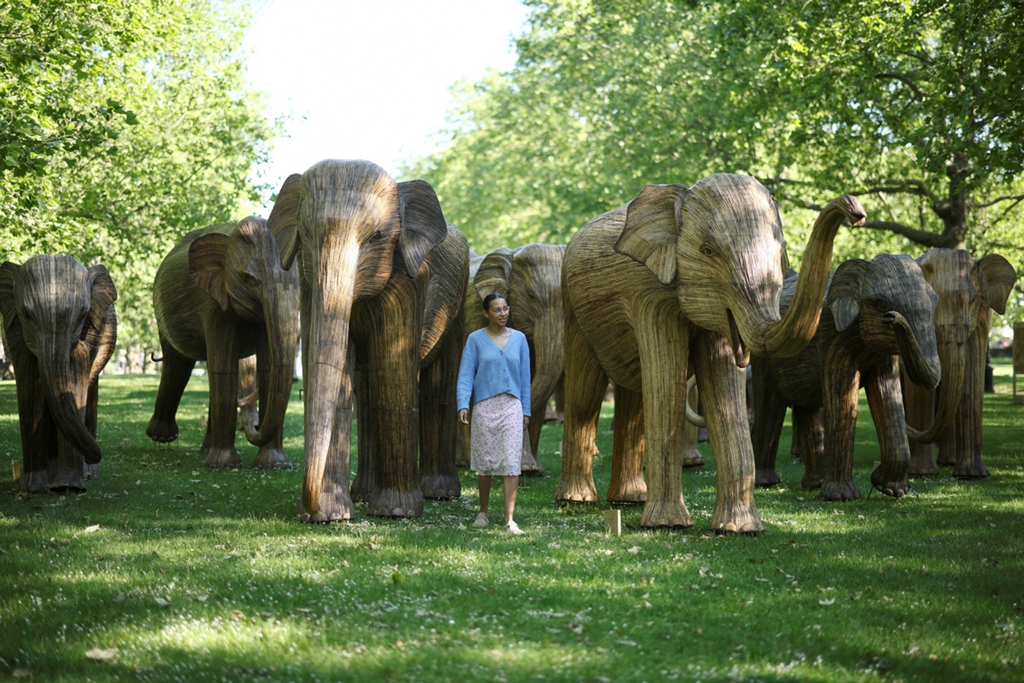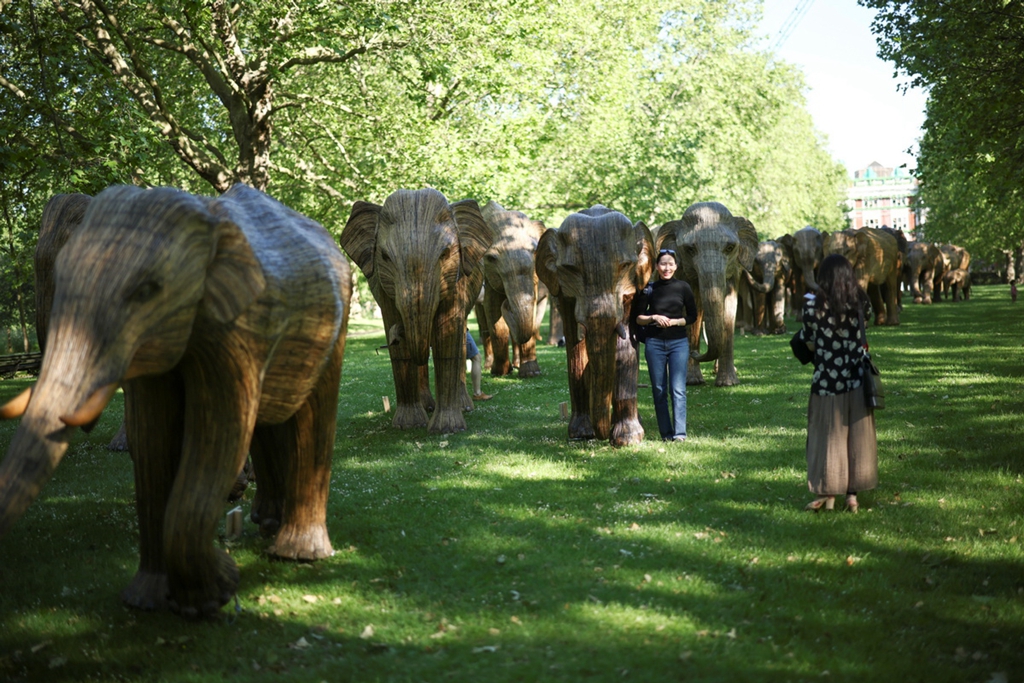UK art project highlights people-wildlife coexistence

A person poses alongside an exhibition of life-size elephant sculptures, part of the CoExistence campaign organized by the Elephant Family Trust, in Green Park in London, Britain, June 14, 2021. [Photo/Agencies]
An exhibition of 125 life-size elephant sculptures has gone on display in London as part of a campaign to highlight the need for coexistence between people and wildlife.
Organized by conservation groups Elephant Family and The Real Elephant Collective, the exhibition comes as a herd of wild Asian elephants roaming Southwest China's Yunnan province has captured global headlines.
The elephants have trekked more than 500 kilometers since leaving Xishuangbanna National Nature Reserve last year. Their journey has highlighted the importance of effective human-wildlife coexistence strategies, said Elephant Family, an international NGO headquartered in the United Kingdom.
The animals' proximity to communities and urban areas presents dangers to both the herd and humans.
Elephant Family said it would like to see more strategies in place that allow elephants to migrate, eat, and "do their best to fit into strange and human-dominated landscapes" in a way that is safe for both people and wild animals.
It is still unclear why the herd started its journey, and the charity said more studies by wildlife experts are needed to understand what triggered the animals' movement.
The CoExistence exhibition is on display at Green Park, St James's Park and Berkeley Square after the sculptures were initially placed outside Buckingham Palace in May.
"CoExistence is an environmental art exhibition by Elephant Family and The Real Elephant Collective," a spokesperson for Elephant Family said. "The elephants have been created deep in the jungles of Tamil Nadu by indigenous communities who live in close proximity to their real-life counterparts. Here, people and elephants coexist in denser populations than anywhere else in the world."

People take a photo next an exhibition of life-size elephant sculptures, part of the CoExistence campaign organised by the Elephant Family Trust, in Green Park in London, Britain, June 14, 2021. [Photo/Agencies]
Tarsh Tekaekara, founder of The Real Elephant Collective, an India-based nonprofit organization committed to protecting elephants, said: "Our best guess is that elephants are very intelligent and have learned that humans grow lots of nutritious food."
"Elephants move over long distances and explore their environment, as their ancestors have always done. Coexistence is about negotiating this sharing of space," Tekaekara said.
When many parts of the world went into lockdown to help control the spread of the novel coronavirus, researchers found wildlife thrived in the wake of reduced human activity.
"Brought about by tragic circumstances, this 'great pause' is helping guide us on how to best share space with animals on our crowded planet," Elephant Family said.
The CoExistence campaign, it added, "marks a unique moment in time, when a global reduction in human activity has had a positive effect on wildlife around the world.
"It has now been scientifically demonstrated that the moment we lighten our footprint, wildlife flourishes and in doing so, transforms the health of the planet for all. The COVID-19 pandemic has showed us that coexistence with wildlife in human-dominated landscapes is very much possible."
After the exhibition, the sculptures will go on sale for between 6,000 pounds ($8,346) for a calf and 30,000 pounds for a large adult. Money raised will be directed toward grassroots organizations in India working on peaceful coexistence.